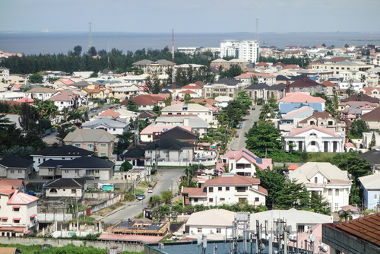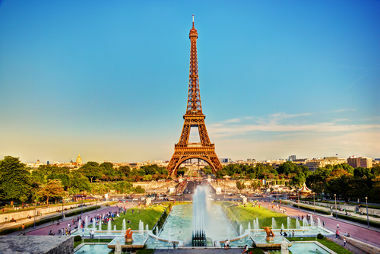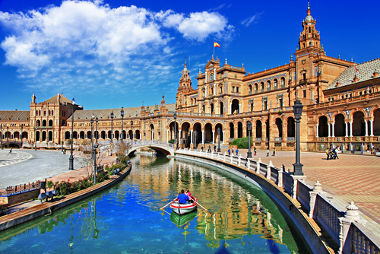According to The United Nation Foundation (The UN), there are 191 countries in the world, but there are some exceptions in this list, because The UN don't consider some territories as a country. To be recognized for a country it must have definite frontiers, economic sustaining, its own currency, a national sovereignty and to be recognized for the other countries. The list from The UN is important, but it is not only one existing, there are two more list of recognized nations from the world that has values as well. The Sports associates have their own lists, the National Olympic Committees and the FIFA have a list with 205 countries. / According to the United Nations (UN), there are 191 countries in the world, but there are some exceptions in this list, because the UN does not consider some territories as countries. To be a recognized country, it needs to have defined borders, economic support, its own currency, national sovereignty and be recognized by other countries. The UN list is important, but it is not the only one that exists, there are at least two other lists of nations in the world that are recognized and that also have value. Sports associations have their own lists, the national Olympic committee and FIFA have a list of 205 countries.
If we look at all of these countries we can find so many things to talk about them, such as culture, social economic status, political, size, age, influence in the world, origin, colonization, differences, similarities, language and so on. For this reason, we know that the world has an innumerable kind of division and the countries can rank up or down depending on the chosen category. / If we look at all these countries we can find many things to talk about them, like their culture, their state socioeconomic, politics, size, age, influence in the world, origin, colonization, differences, similarities, language between others. For this reason, we know that the world has countless ways to be divided and that countries can take high or low positions depending on the category chosen.
Below we have a list of some Countries, each name is followed by its related adjective. In general you can use the adjective to identify a person who comes from each place, like in this example: Brazil – Brazilian. We call them: Nationalities. Below we will have a list of countries, each name is followed by its respective adjective. Usually the adjective is used to identify the person who came from each country, as in the example: Brazil – Brazilian. We call these adjectives nationalities.
In the list below we choose 10 countries to demonstrate their names, nationalities, continent and capital, that is most of the time the most important city of the country. We gather in this list countries that have an important influence on some areas in the world. The criteria used for us was the population quantity, for example, China, India and Niger are among the most population in the world, and they three have the English as an official language in some states. Another criteria was the culture influence, most of these countries have a great art influence in the world through their painters, their writers, their singers, their architecture and all kind of art that they have. In the list below, we chose 10 countries for a demonstration, with their names, nationalities, continents and capitals, which in most cases is the most important city in the country. The criterion used by us was the amount of population, for example, China, India and Nigeria are among the most populous countries in the world. And the three countries have English as their official language in some regions. Another criterion was the cultural influence, most of these countries have a great influence on the world through its painters, writers, singers, its architecture and every kind of art that they possess.
Some examples are: / Some examples are:
France: Joan of Arc, Rene Descartes, Voltare, Jean Jacques Rousseau, Eugène Delacroix, Honore de Balzac, Victor Hugo, Alexandre Sumas, Jules Verner, Poul Cezanne, Claude Debussy, Marie Curie, Marcel Proust, Coco Chanel, Jean Monne, Brigitte Bardot and so on. / France: Joan of Arc, Rene Descartes, Voltare, Jean Jacques Rousseau, Eugène Delacroix, Honore de Balzac, Victor Hugo, Alexandre Sumas, Jules Verner, Poul Cezanne, Claude Debussy, Marie Curie, Marcel Proust, Coco Chanel, Jean Monne, Brigitte Bardot among others.
England: Jane Austen, William Wordsworth, William Shakespeare, William Tyndale, Oliver Cromwell, Charles Dickens, Emily Bronte, Winston Churchill, J.R.R. Tolkien, The Beatles and so on. / England: Jane Austen, William Wordsworth, William Shakespeare, William Tyndale, Oliver Cromwell, Charles Dickens, Emily Bronte, Winston Churchill, J.R.R. Tolkien, The Beatles among others.
Spain: Salvador Dalí, Pablo Picasso, Miguel de Cervantes, Tomas De Torquemada, Federico García Lorca and only on. / Spain: Salvador Dalí, Pablo Picasso, Miguel de Cervantes, Tomas De Torquemada, Federico García Lorca among others.
German: Ludwig van Beethoven, Johannes Gutenberg, Albert Einstein, Charles Schulz, Anne Frank, Levi Strauss, Thomas Mann, Johann Sebastian Bach and sthe on. / Germany: Ludwig van Beethoven, Johannes Gutenberg, Albert Einstein, Charles Schulz, Anne Frank, Levi Strauss, Thomas Mann, Johann Sebastian Bach among others.
Do not stop now... There's more after the advertising ;)
These are just a few examples, of course all the countries in our list have their contribution for the world, it can be, by the musics, poetry, dance, economy, language and so many other that they represent. Another criteria was the weather condition and landscape. The Brazil, for example, has a lots of natural beautiful places one of the largest of the world, Australia has incredible and wild places as well and a great part of this country is a desert otherwise Canada has a cold weather that provide them too cold days made for them almost impossible fell the heat from the sun. / These are just a few examples, of course all countries mentioned in the list have some contribution to the world, whether by music, poetry, dance, economy, language and so many other characteristics that they represent. Another criterion was the weather conditions and landscapes. Brazil, for example, has many natural landscapes in its territory, one of the largest in the world; Australia has amazing and wild places, with a large part of this country made up of desert and unlike it has the Canada, which has a cold climate that provides its population with very cold days, making it almost impossible for them to feel the heat of the sun.
Let's take a look! / Let's take a look!
China – Chinese
Continent: Asia
Capital: Beijing

China Wall, the greatest man-made architectural work, a popular tourist spot in China
India – Indian
Continent: Asia
Capital: New Delhi

The Taj Mahal is a construction made in honor of the wife of Emperor Shah Jahan, located in the city of Angra
Niger - Nigerian
Continent: African
Capital: niamei

Aerial photo of the capital Niamey
England – English
Continent: European
Capital: London

London at sunset. Big Ben view
France - French
Continent: European
Capital: Paris

Eiffel Tower, one of the postcards of the city of Paris
Spain – Spanish
Continent: European
Capital: Madrid

View of Plaza de España, Madrid
Germany – German
Continent: European
Capital: Berlin

ÇHohenzollern astel, in the city of Hechingen, in the region of Baden-Württemberg
Canada - Canadian
Continent: American
Capital: Ottawa

Vancouver city view
Australia - Australian
Continent: Oceania
Capital: Canberra

Rock Natural Monuments in Australia, 275 km west of Melbourne
Brazil - Brazilian
Continent: American
Capital: Brasilia

The Iguaçu Falls, seen from the Brazilian side, one of the most beautiful natural landscapes in Brazil
The most important of all is consider the value of your own country. We always have to have clearly to appraise our country's positive points and in the other hand face its negative points and to be ready to help turn it better starting with us! / Most important of all is to consider the value of our own country. We always have to be clear to appreciate the good points of our country and, on the other hand, face its bad points and be ready to help make them better starting with us!
By Janaína Mourão
Graduated in Letters - English


